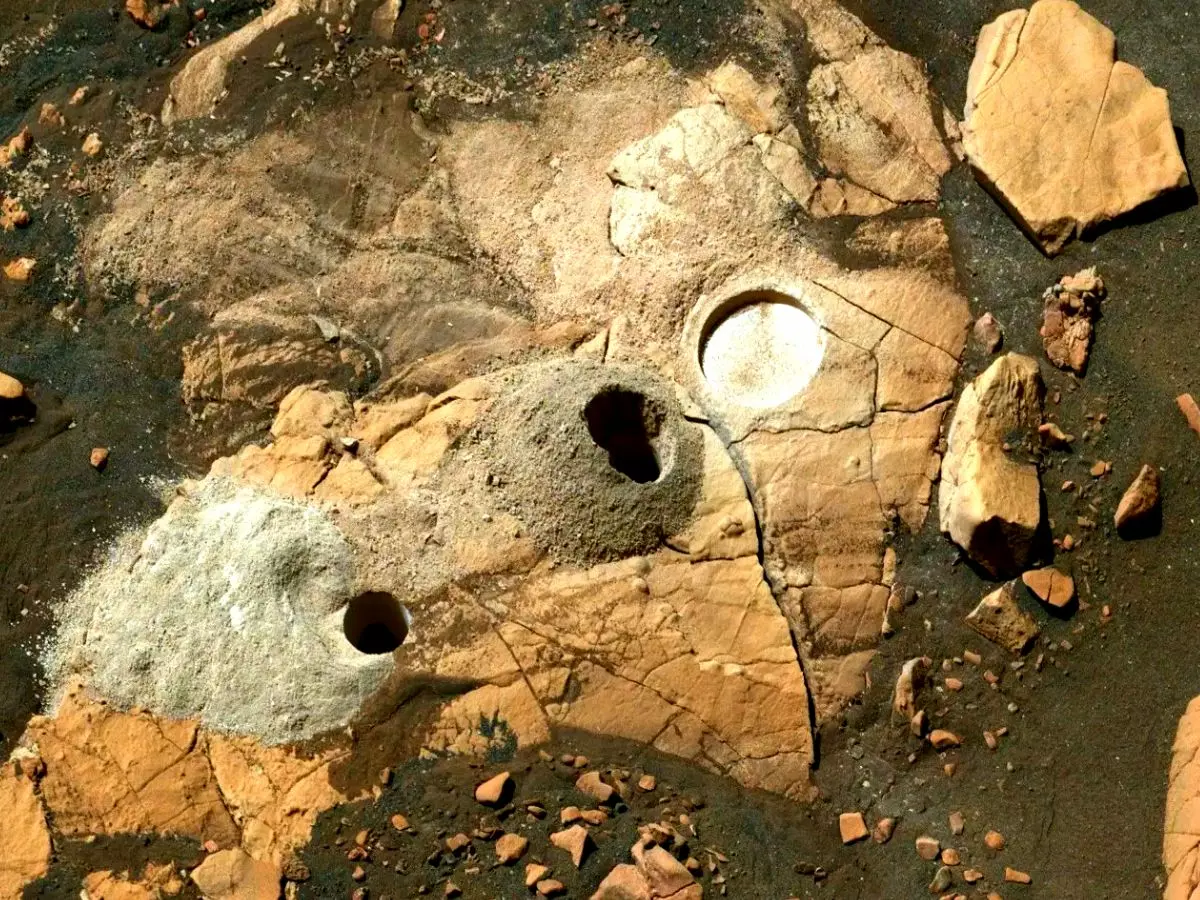Perseverance Rover Detects, Collects Strange Organic Matter In Wildcat Ridge On Mars
These samples are exciting as the organic molecules found there has a strong potential biosignature, which as per NASA is a substance or structure which could offer hints to past light as well as the fact that they could have been produced without the presence of life.

NASA's Perseverance rover has been roaming across the Martian terrain for over a year and a half now, and in this time it has managed to make considerable discoveries that have helped us better understand our neighbour.
 NASA
NASA
And now, it has discovered organic matter on some rock samples, which it collected from Mars' Wildcat Ridge. Located in an ancient river delta of the Jezero Crater, the rover managed to successfully collect two samples from the rock.
These samples are exciting as the organic molecules found there has a strong potential biosignature, which as per NASA is a substance or structure which could offer hints to past life as well as the fact that they could have been produced without the presence of life.
Researchers have highlighted that just because they've found organic matter, doesn't mean that they've found evidence of life that existed on the planet in the past. Moreover, this isn't the first instance of spotting organic molecules on the planet -- Curiosity rover did it way back and so did Perseverance.
Perseverance's Sherloc (Scanning Habitable Environments with Raman and Luminescence for Organics and Chemicals) instrument's analysis of the Wildcat Ridge revealed that it had the most abundant organic detections on the mission to date.
 NASA
NASA
Perseverance project scientist Ken Farley said in a statement, "In the distant past, the sand, mud and salts that now make up the Wildcat Ridge sample were deposited under conditions where life could potentially have thrived. The fact the organic matter was found in such a sedimentary rock -- known for preserving fossils of ancient life here on Earth -- is important."
Farley added stating, "The reality is the burden of proof for establishing life on another planet is very, very high," and that the rock samples need to be examined up close and in-person in labs on Earth to be extremely sure.
For more in the world of technology and science, keep reading Indiatimes.com
